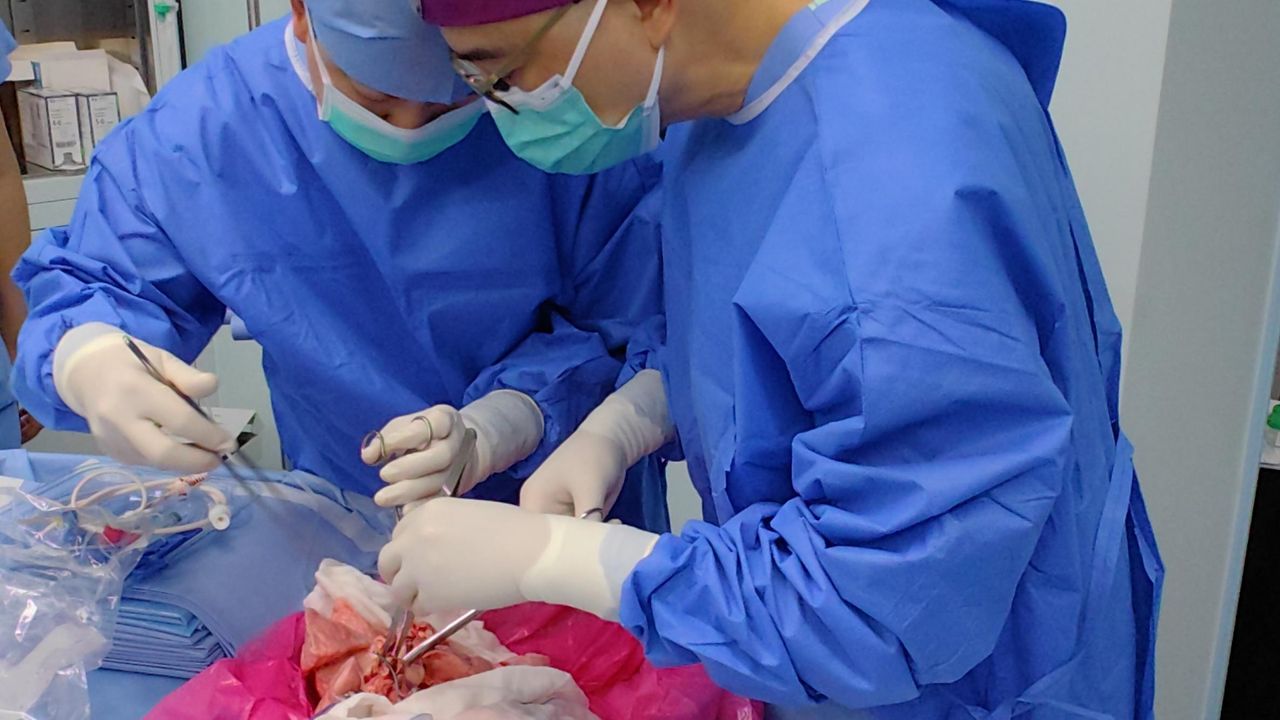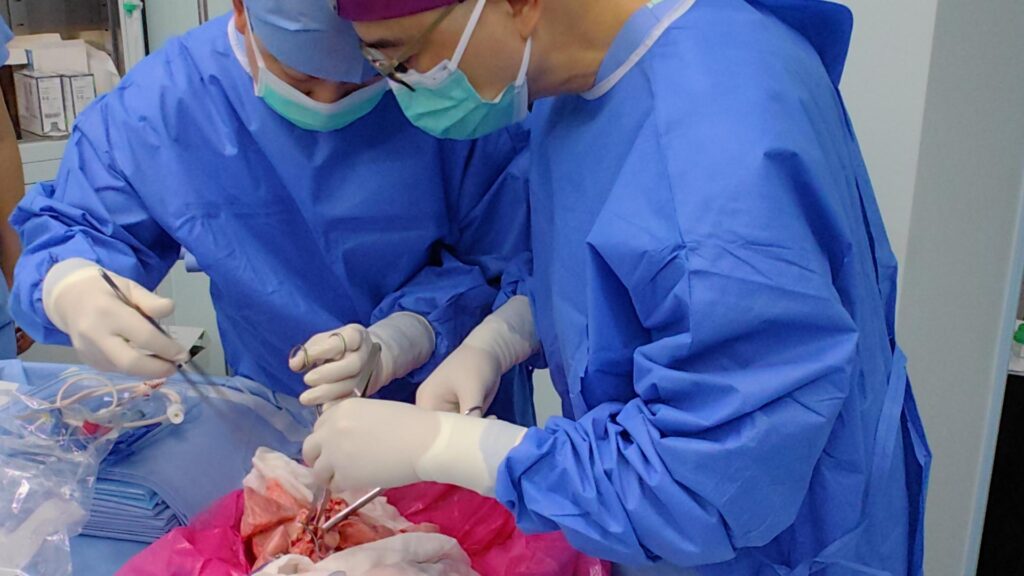
In a first-of-its-kind experiment, doctors in China transplanted a lung from a genetically modified pig into a brain-dead person.
Similar experiments involving brain-dead patients have previously taken place in the U.S., but they involved different pig organs, such as kidneys and hearts, and a previous experiment in China involved a pig liver. These experiments have paved the way to transplants of pig organs into living human patients, although only a handful of those procedures have been performed so far.
The recent experiment, described Monday (Aug. 25) in the journal Nature Medicine, took place in Guangzhou, China, and involved a 39-year-old male who had been declared brain-dead prior to the procedure. The team confirmed that the patient was brain-dead through four different assessments and gained written informed consent from his family to perform the experiment, according to the report.
This is the first time doctors have attempted to transplant a lung from another species into a human — a procedure known as lung xenotransplantation.
“For our team, this accomplishment is a meaningful beginning,” study co-author Dr. Jiang Shi, a doctor in the department of organ transplantation at the First Affiliated Hospital of Guangzhou Medical University, told STAT. “Lung xenotransplantation presents unique biological and technical challenges compared to other organs.” The aim of the study was to investigate how the human immune system might react to such a transplant, “not to claim clinical readiness today,” Shi added. In other words, the technique is not yet ready for prime time in living patients; it’s still in preclinical investigation.
Once transplanted, the pig lung “maintained viability and functionality” for nine days, even though it showed signs of rejection as early as 24 hours after the procedure. The experiment ended on Day 9 at the request of the patient’s family. From the report, it’s unclear how much longer the lung might have lasted had it been left in for longer, but the organ had accrued damage by Day 9.
Related: Can you transplant an organ more than once?
“Nobody would sign up for a nine-day lung transplant,” Dr. Adam Griesemer, a senior member of the xenotransplantation team for NYU Langone’s Transplant Institute who was not involved in the procedure, told CNN. That said, “I think it is very important to do these studies [in brain-dead people] since you can’t assume that the animal models are going to perfectly reflect what happens in human recipients,” Griesemer added.
The experiment involved a lung from a pig that had been genetically modified using the gene-editing technology CRISPR; a company called Clonorgan Biotechnology in Chengdu, China, handled the editing. Three of the pig’s genes were disabled so that the proteins for which they code wouldn’t activate the human immune system; three human genes were also added in an attempt to make the organ more tolerable to a human body.
In May 2024, the transplant team removed the left lung of the pig and transplanted it into the brain-dead patient, who retained his right lung. Immunosuppressive drugs were introduced to the patient’s body starting one day before the procedure and were given daily following the operation.
The patient’s body didn’t show signs of “hyperacute rejection,” which would have taken place immediately after the transplantation if it did manifest. Although the lung made it over that initial hump, signs of rejection began to emerge around the 24-hour mark, marked by swelling and inflammation. The immune system generated antibodies against the organ by the third day after the operation, resulting in some damage to the lung.
The researchers suggested that for future attempts at this type of experiment, it might help to block the action of specific immune cells, as well as to suppress certain signaling molecules that ramp up inflammation. The lungs present a huge challenge because, given that they’re constantly exposed to air from outside the body, they carry many proteins geared toward immune defense — this paradoxically makes them an easy target for the host immune system to see as “foreign.” Additionally, their tissue that exchanges oxygen and carbon dioxide is very delicate, meaning any immune attacks launched against them pack a punch.
Other questions remain about how to improve upon the approach and how well it could work for a living patient. Based on the current study, for instance, it’s unclear how well the pig lung could have supported the patient if he was removed from life-support machines, Dr. Richard Pierson, a thoracic transplant surgeon at Massachusetts General Hospital in Boston who was not involved with the recent procedure, told Science News.
“Future studies can refine the approach to lung xenotransplantation and move closer to clinical translation,” the study authors concluded. “This study provides crucial insights into the immune, physiological and genetic barriers that must be overcome, and paves the way for further innovations in the field.”
